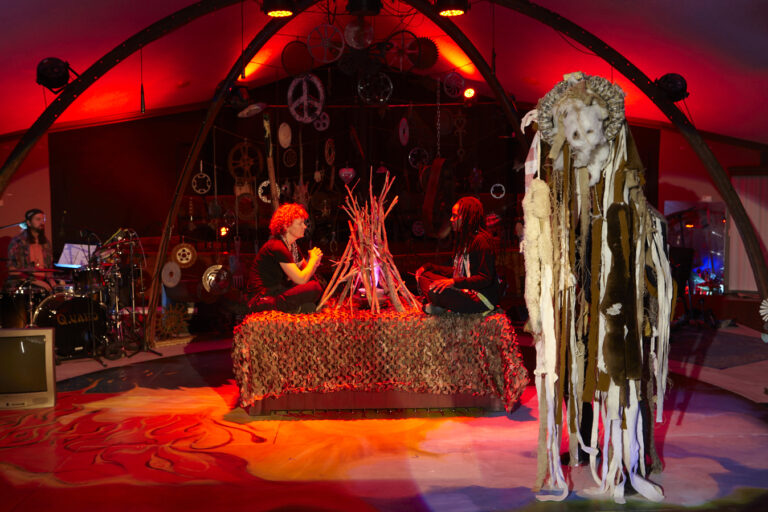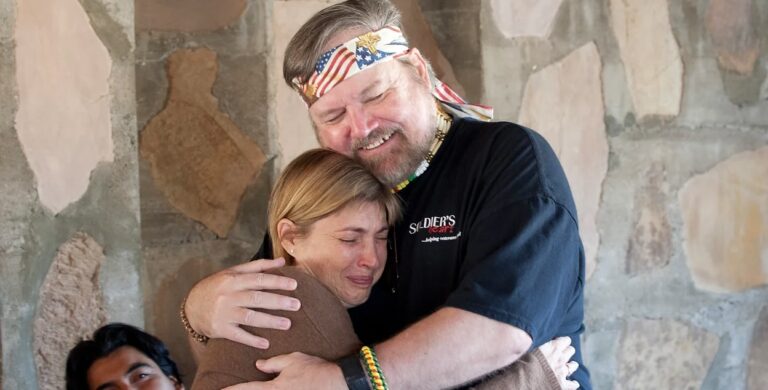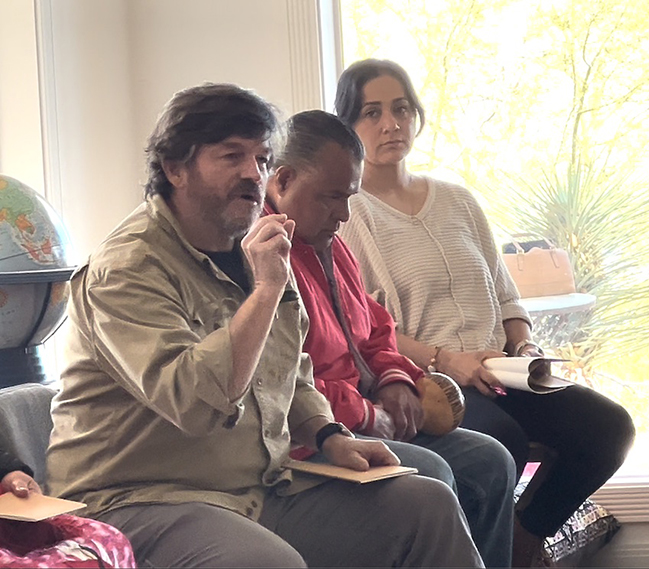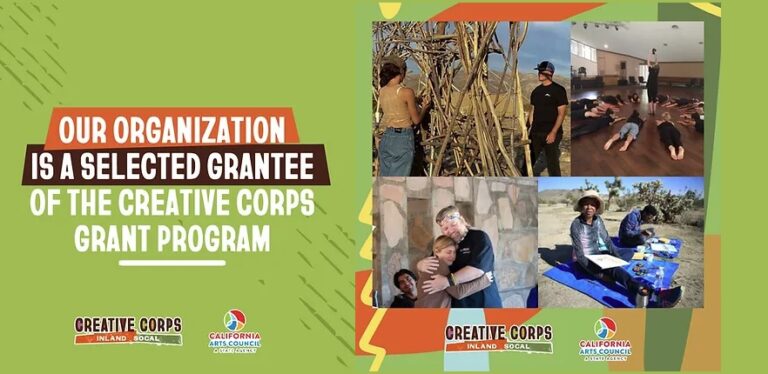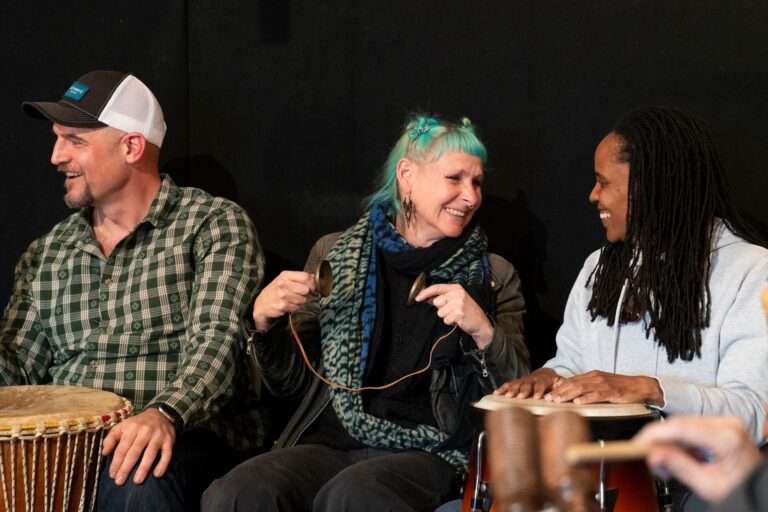The Hard Work Begins
Reading time 3 minutes
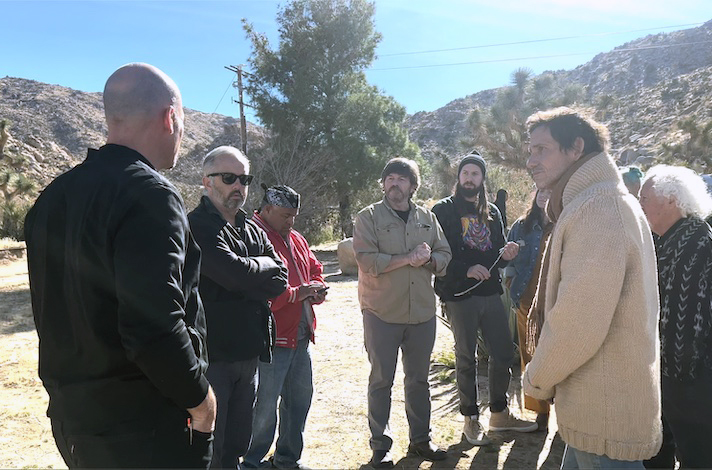
The playwriting stage of the Tapestries of Transformation project began after the retreat, laying the foundation for a narrative that resonated with both veterans and civilians.
The Playwriting Process
Should you undertake writing your own play, here are some of the steps we took that may be helpful to you.
Organizing Contributions
Our story writer, Gabriel Hart, received a stack of handwritten contributions from workshop participants, which he compiled into a master document that would serve as a reference throughout the scriptwriting process.
Developing the Story Concept
The story needed to reimagine veteran and civilian archetypes and how they relate to the Morongo Basin landscape.
Recognizing that veterans often feel there’s no true homecoming, Hart subverted the traditional hero’s journey.
Instead of a linear arc, he visualized a circle where the bottom half is buried underground, symbolizing the darkest part of the journey before the upswing that completes the circle.
Ensuring Authenticity
As a non-veteran, Hart ran his ideas by veteran friends to ensure the story remained authentic and tonally accurate.
Feedback from a veteran highlighted a crucial narrative shift: veterans, accustomed to trauma, often found themselves helping civilians who seemed “stuck” in their trauma.
This revelation was incorporated into the story, showcasing veterans as continuing their service by leading and supporting civilians.
Drafting and Refining the Script
Hart wrote five drafts, receiving continuous feedback from veterans and Christian Camargo, the director, whose emphasis was on making the narrative “playable,” and stage-ready.
Hart and Camargo dedicated their time fully to the enormous effort of writing a play.

Players and readers: An important aspect of preparing first-time actors for their first time on stage with mere weeks to prepare was to devise a script whereby each character would be played by two people–one to perform the actions and another to read the lines (pictured above).
Recommendations
We invite you to borrow the Tapestry script. Should you decide to write your own, consider the following ideas.
Recognize the power of theater as a tool for storytelling and community building.
Use stories to foster understanding, express relationships, and reflect on communal experiences.
Encourage exploration of myths and early theater traditions to enrich the narrative and connect with universal themes.
Team up on playwriting. Consider a collaboration between a narrative writer and a theater maker. The writer focuses on the story, while the theater maker adapts it for the stage.
Tap into existing resources, such as veteran theater companies, for advice or assistance in adapting stories for the stage.
In many communities there are storytellers, but it may be more challenging to find someone who can bridge the gap between writing and stage adaptation. Military and veteran organizations can provide support and expertise.

